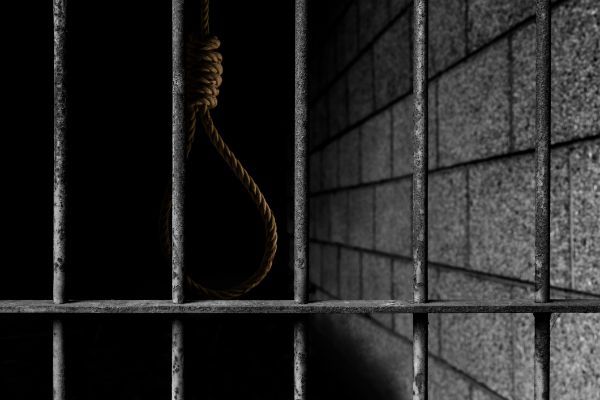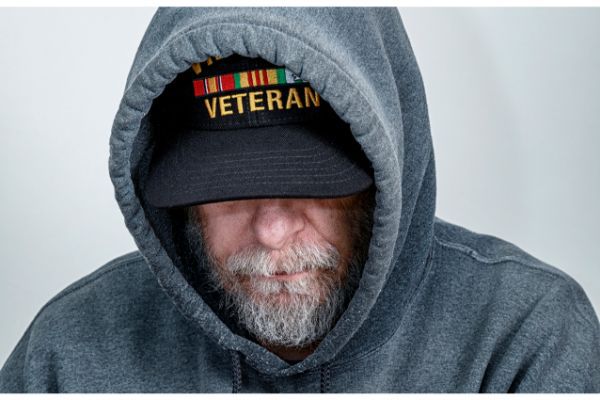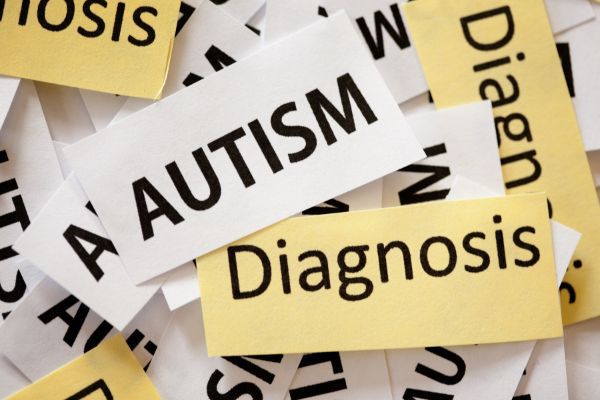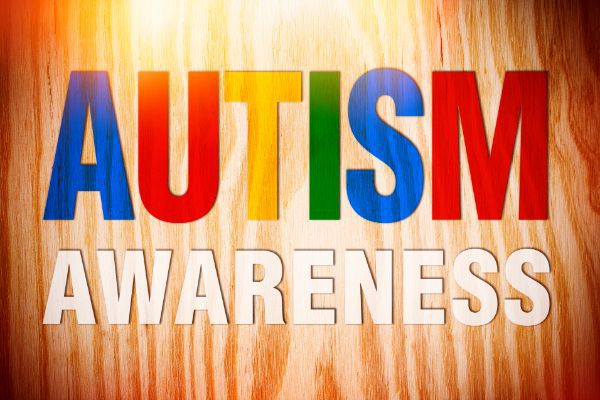|
The suicide rate inside California prisons is one of the highest in the nation. New data now shows that the suicide rate jumped to a new high in 2018 and remained high in 2019. This is despite efforts to fix the system.
High Suicide Rate In 2018, an average of three California prison inmates died by suicide each month in state prison. This resulted in 34 total suicides out of a total of 129,000 inmates. The annual rate of suicide is 26.3 deaths per 100,000 inmates, which is considerably higher than the national average of 20 per 100,000. This rate has increased steadily over the past four years. Given the numbers so far, 2019 is on trend to be even higher. Problems in the System The high suicide rate is thought to be the result of a system that fails to provide its inmates with proper care. Inmates who are seeking mental health care assistance are effectively punished by being deprived of meals and showers, and often placed in isolation. Many individuals in the prison system suffer from mental illness and don't get the help they deserve. The system has been unable to deliver the necessary care. A special master was appointed by a federal court to oversee changes in the system. However, there are still systemic failures. A federal court tracks California's inmate suicides and has found troubling trends. There has been neglect and violations of prison policy that may have placed inmates in danger. Many inmates who died by suicide displayed previous signs of self-harm and suicidal intent. In addition, the bodies of suicide victims routinely go unnoticed, sometimes for several hours, despite the requirements that those on suicide prevention receive regular checks by guards. Failures in the system also include long wait times for mental health care and a lack of psychiatrists on staff. In addition, failure to monitor inmates with suicidal tendencies and falsification of welfare check logs have also contributed to the problem. A lack of suicidal prevention training for staff and a delay in health care have also been noted as serious problems. If you or a loved one has a mental disability and has been arrested or convicted of a crime, you need an experienced criminal defense attorney on your side. Elizabeth Kelley specializes in representing individuals with mental disabilities. To schedule a consultation call (509) 991-7058.
1 Comment
Post-traumatic Stress Disorder is a serious mental health condition that can have a severe effect on someone's life. PTSD is often found in military veterans who have experienced the stress of wartime conditions. However, sometimes, veterans and other individuals attempt to hide or mask the symptoms of PTSD due to the stigma of mental health issues. This can make it difficult to obtain an appropriate diagnosis. Now a new blood test may help identify biomarkers that point to a diagnosis of PTSD.
Quicker Diagnosis Thanks to a new blood test researched by the Army in conjunction with the New York University School of Medicine, doctors may be able to diagnose PTSD quickly and more accurately. Rather than an extensive and complex psychological test, a simple blood analysis could provide the necessary diagnosis. A study published in Molecular Psychiatry identified 27 blood markers that could be used to identify PTSD. These findings help support past hypotheses that asserted that PTSD affects not just the brain but the body as well. The blood markers will be further refined before the test is commercially available. Researchers hope that the blood test will allow, not only for a more accurate diagnosis but for an early diagnosis, which leads to earlier treatment and better outcomes for patients. The test could even potentially identify PTSD before symptoms have manifested. The blood test could also be used to help overcome the fact that many symptoms of PTSD are difficult to identify or are hidden by sufferers due to the stigma associated with the condition. Limits on the Study The study, which took six years of work, tracked blood samples from 165 veterans, half of whom had PTSD following war-zone deployments. There are some important limits to the blood marker study. No women were included among the test subjects for the blood test. In addition, only military veterans and no civilians were included in the study. The creation of a simple and effective blood test will require further more comprehensive testing and could still be years away. If you or a loved one has a mental disability and has been arrested or convicted of a crime, you need an experienced criminal defense attorney on your side. Elizabeth Kelley specializes in representing individuals with mental disabilities. To schedule a consultation call (509) 991-7058. According to an online database called GapMap, more than 80% of counties in the United States do not have diagnostic centers for autism. A mapdeveloped based on information from the database shows significant areas of the country where there are diagnostic deserts. This means that in these areas, there are significant barriers to getting a diagnosis. The lack of autism resources and diagnostic centers are seen as the culprit for lack of appropriate diagnosis.
The Importance of a Diagnosis Even though there are gaps in the country where people do not have access to adequate autism resources does not mean that there aren’t people with autism in those areas. It is critical for individuals with autism to receive an appropriate diagnosis as soon as possible. An early diagnosis can lead to better outcomes for individuals as well as better behavior management. Without the resources necessary to obtain a diagnosis and the necessary treatment, a person with autism may suffer. Lack of Resources The map developed by researchers also used data from Autism Speaks, Parents Helping Parents, and the Autism Society to identify the locations of autism resources. The map shows that there is an abundance of specialists and resources along the east coast of the country. The areas from Boston to Washington, D.C, and around Chicago and Los Angeles, have many resources for individuals with autism. However, large areas of the West and Midwest lack resources. On average, people with autism in Alaska have to travel over 63 miles to reach the necessary resources. It is estimated that 1 in 59 people has autism. This means that even in the diagnostic deserts, there is likely a high rate of people with autism who don’t have access to the resources they need. Without the proper assistance, individuals with autism and their families may not receive the education and support they need to gain essential social skills and learn to function better in society. If you or a loved one has a mental disability and has been arrested or convicted of a crime, you need an experienced criminal defense attorney on your side. Elizabeth Kelley specializes in representing individuals with mental disabilities. To schedule a consultation call (509) 991-7058. Individuals and families with children who have autism are often on the receiving end of stares and judgment as a result of the condition. People with autism sometimes exhibit behavior that is not in line with what society expects. Parents of autistic children may be told to "control your child," and individuals may be criticized for not reacting to a situation in a neurotypical manner. However it manifests, it is clear that there is a deep-rooted stigma associated with autism. Education and awareness may be the best way to end that stigma.
Harsh Stigma Individuals with autism often exhibit behavior that is different from what some people are used to. They may have emotional outbursts at inappropriate times. In some cases, they may fail to pick up on social cues or not know how to act in relation to other people. This can lead to a deep misunderstanding of autism. A diagnosis of autism is sometimes seen as something that is shameful. This stigma prevents many people from seeking a diagnosis and treatment for the condition, which can result in people with autism being unable to live their lives fully. The truth is that individuals with autism and the families that care for them deserve to be treated with respect. People with autism and their families often feel isolated and alone. Children with autism often have trouble making friends or fitting in at school as they are seen as “weird” or “odd.” This can lead to bullying and a lifetime of failing to fit in. Autism Awareness The best way to combat the stigma associated with autism is to increase awareness of the condition. If people were better able to understand the symptoms and behaviors associated with the condition, then perhaps there would be less of a negative association with autism. Battling autism stereotypes, such as the belief that bad parenting results in autism, can help foster a greater understanding and acceptance. In addition, people on the Autism Spectrum do not need to be fixed. Rather, they may need accommodations. It’s important we foster a culture that values the early treatment and diagnosis of autism. Individuals who receive treatment early have better outcomes and reduced emotional behaviors. Changes in perception can help promote a greater acceptance of neurodiversity. If you or a loved one has a mental disability and has been arrested or convicted of a crime, you need an experienced criminal defense attorney on your side. Elizabeth Kelley specializes in representing individuals with mental disabilities. To schedule a consultation call (509) 991-7058. In 2016, the United States Department of Justice brought a lawsuit against the state of Mississippi, alleging that its mental health system was inadequate and violated federal law. In a 61-page opinion, federal Judge Carlton W. Reeves found that the state had violated the Americans with Disabilities Act and had failed to provide adequate mental health care.
Failures in the System The judge noted that Mississippi has failed to offer adequate resources in the community for individuals with mental illness. The state frequently relies on the use of state-run hospitals that are often underfunded and understaffed. While the state does appear to offer some programs in the community, the reality is that many of these programs are not useful. The judge noted that one critical service where psychiatrists and nurses treat patients with severe mental illness in their homes and communities was only available in 14 of the state’s 82 counties. In addition, a 24-hour crisis hotline that was designed to dispatch mental health professionals to people in need often failed to do so. In some cases, mental health teams were located so far away from callers that they were useless. The state spent most of its mental health resources on state-run hospitals and spent less than the nation's average on community-based care. This results in a cycle of hospitalization for individuals with mental illness who do not receive care in the community. Institutionalization can have a harmful impact on those with severe mental illness as it deprives them of their freedom and privacy. Solutions for the Future The judge appointed a special master to oversee Mississippi’s mental health system going forward. The hope is that the Legislature will provide increased funding for community mental health programs so that more people can avoid being institutionalized. Community care often proves more effective for people with serious mental illness and can help identify those individuals who are in need of care. If you or a loved one has a mental disability and has been arrested or convicted of a crime, you need an experienced criminal defense attorney on your side. Elizabeth Kelley specializes in representing individuals with mental disabilities. To schedule a consultation call (509) 991-7058. Depression and anxiety occur at high rates among students. Whether it's dealing with the pressures of school and social life, or worrying about the state of the world, children have a great deal of weight on their shoulders. In some cases, taking a day off from school can help a student recharge and can help reduce the effects of depression and anxiety. However, most schools do not consider mental health as a valid reason to miss school. A new bill introduced in New York aims to change that.
Mental Health Days Suicide is the second leading cause of deathamong children age 10-18. The number of children and teens treated for suicidal ideations has nearly doubled. It is clear that there is a desperate need for mental health care. If students cannot take a day from school to treat their mental health issues, then the problem can be compounded. Mental health days are important to a student's well-being. If a student is experiencing a day where their depression or anxiety is overwhelming, they shouldn't be forced by school policy to go to school. They should be given the opportunity to get help. Two states have already adopted policies that would allow students to take mental health days. In Oregon, students are allowed five mental health days during a three-month period. In addition, Utah now recognizes mental health as a valid reason for missing school. New Bill A new bill introduced in New York would make mental or behavioral health an acceptable excuse for missing school. The hope is that children will not be penalized for taking care of their mental well-being. In addition, mental health days could be used to help school personnel and staff identify individuals who need further care and attention. Schools should have appropriately trained staff who can help students receive the care they need to avoid excessive absenteeism. Some parents support the idea of mental health days, while others fear that students will take advantage of the plan. However, students who need mental health days often lie about being sick in order to miss school anyway. Providing designated mental health days could help prevent the lies and alert parents to the fact that their children may need help. If you or a loved one has a mental disability and has been arrested or convicted of a crime, you need an experienced criminal defense attorney on your side. Elizabeth Kelley specializes in representing individuals with mental disabilities. To schedule a consultation call (509) 991-7058. 12/9/2019 California Program Would Provide Confidential Mental Health Care to First RespondersRead Now It is no secret that more first responders lose their lives to suicide rather than in the line of duty. A Ruderman Foundation studyfound that in 2017, 243 first responders died by suicide compared to 222 who died in the line of duty. It is clear that there is a mental health crisis among our first responders. More and better mental health care is needed to help provide these individuals with the support they need. A new program in San Diego County will hopefully provide that assistance.
Mental Health Stigma Recognizing the need for mental health care and assistance for their employees, many counties offer some type of program to help. However, the stigma of seeking mental health care still runs rampant through first responder agencies, and many choose not to seek help. Some first responders see mental health care as a sign of weakness and worry about the effects seeking help can have on their careers. It is a difficult balance to maintain, given that the jobs of first responders require a degree of toughness. These individuals often have to put themselves in danger to do their jobs. A new program proposed by County Supervisor Nathan Fletcher seeks to reduce the stigma and help first responders get the care they need. The program named for Cal Fire Captain Ryan Mitchell, a firefighter who died by suicide in 2017, hopes to overcome the culture where first responders don't seek help. The program would provide confidential resources that would hopefully eliminate some of the barriers that prevent first responders from seeking treatment. The program also calls for a stigma reduction media campaign aimed at first responders. The program will also provide assistance to retired first responders. The traumatic nature of public safety can often lead to individuals developing post-traumatic stress disorder. PTSD does not disappear just because someone is no longer on the job. Treatment and support are still needed even when an individual has retired. Sometimes the symptoms of PTSD don't fully manifest until someone has settled into retirement. The hope is that the program will encourage other agencies to improve their mental health care. If you or a loved one has a mental disability and has been arrested or convicted of a crime, you need an experienced criminal defense attorney on your side. Elizabeth Kelley specializes in representing individuals with mental disabilities. To schedule a consultation call (509) 991-7058. Parents frequently worry about the effect screen time has on their children’s mental well-being. There is the perception that the use of tablets and phones can lead to issues with mental health. However, a new study has shown what experts have been saying for years. Screen time is not associated with mental health issues.
The Study The study published in Clinical Psychological Science explored how screen time affects the mental health of adolescents. Researchers compared a baseline survey given to 388 adolescents in rural and urban areas of North Carolina. Surveys were administered three times a day over a two-week period to the same adolescents. The survey asked questions related to time spent using technology and mental health. Researchers found that phone ownership and social media usage were unrelated to depression, anxiety, and inattention or hyperactivity. Some significant associations were found in the study. The study noted that adolescents who sent more text messages reported lower depression symptoms. In addition, it found that individuals who spent more time on technology for school work were more likely to exhibit signs of inattention and hyperactivity. The study also noted that adolescents who spent time on technology creating their own content actually experienced better mental health. This may be due to the benefits of creativity in children. Limitations of the Study There were some limitations to the study that may make it not as conclusive as we would hope. The study was based on self-reporting by adolescents. A more in-depth analysis of screen time usage and the content of text messages could further help understand the emotional well-being of individuals. However, researchers are hopeful that the study will help parents relax when it comes to the use of technology by their children. Parents should focus on having an open dialogue and spending time with their children rather than fighting over screen time. This should open up an opportunity to establish practices for helping children who are growing up during the digital age. If you or a loved one has a mental disability and has been arrested or convicted of a crime, you need an experienced criminal defense attorney on your side. Elizabeth Kelley specializes in representing individuals with mental disabilities. To schedule a consultation call (509) 991-7058. Suicide is on the rise in the United States, especially in rural areas of the country. The findings of a study from Ohio State University found an astonishing rise in suicide rates for adults age 25-64. The study noted key factors such as lack of insurance and availability of guns that may have contributed to the rise.
The Study The study evaluated nationwide suicide data from 1999-2016 among adults age 25-64. Researchers created a county-by-county estimation of suicide rates. During that time period, suicide rates climbed by 41% from a rate of 15 suicides per 100,000 residents in 1999 to a rate of 21.2 suicides per 100,000 residents in the last three years of the study. Suicide rates were higher in less populous counties and areas where there were lower incomes and diminished access to resources. From 2014-2016, the suicide rates were considerably lower in large metropolitan counties than they were in rural counties. The highest suicide rates were concentrated mostly in Western states. The highest rates were found in Colorado, New Mexico, Utah, and Wyoming. Rural counties in Kentucky, Virginia, and West Virginia also had very high suicide rates. Moving Forward Researchers hope that the findings of their study will help narrow the focus of where suicide prevention help is most needed. The study helps highlight some of the factors that contribute to suicide rates, including a lack of resources and access to guns. The hope is that the study results can help drive further efforts toward assisting people in crisis in getting the help they need. In 2015, a nationwide prevention initiative was started in an effort to reduce the rate of suicides by 20% by 2025. Given the rise in suicide rates, it doesn't appear that the goal is attainable. However, the patterns and trends uncovered in the Ohio State study could be used to help shape future suicide prevention initiatives. Providing better access to mental health resources in rural counties could go a long way toward helping alleviate the problem. If you or a loved one has a mental disability and has been arrested or convicted of a crime, you need an experienced criminal defense attorney on your side. Elizabeth Kelley specializes in representing individuals with mental disabilities. To schedule a consultation call (509) 991-7058. |
Details
Archives
March 2024
Categories |









 RSS Feed
RSS Feed